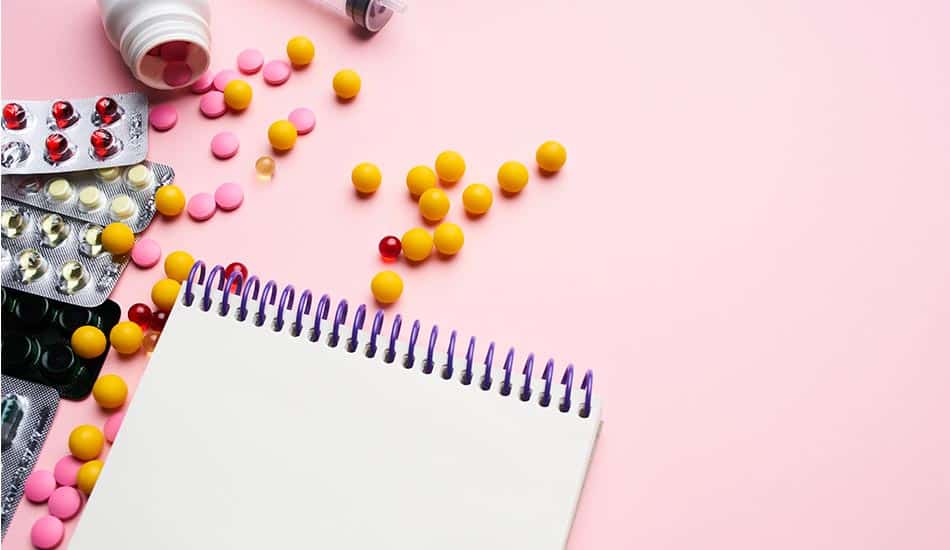- Home
- Treatment
Treatment Designed for You.
Get in touch with Absolute Awakenings today and begin your journey to long-term healing & recovery. - What We Treat
Get help today, start your journey!
An Experience in Healing
Get in touch with Absolute Awakenings today and begin your journey to long-term healing & recovery. - About
The Rehab You've Been Looking For
Get in touch with Absolute Awakenings today and begin your journey to long-term healing & recovery. - Tour
- Resources
Don't Wait Another Day.
Get in touch with Absolute Awakenings today and begin your journey to long-term healing & recovery. - Admissions
The Rehab You've Been Looking For
Get in touch with Absolute Awakenings today and begin your journey to long-term healing & recovery. - Contact
(866) 627-0196
3000 NJ-10, Morris Plains, NJ 07950
admissions@absoluteawakenings.com
Schedule a Tour Now
Get in touch with Absolute Awakenings today and begin your journey to long-term healing & recovery.
Begin Your Journey Now
Begin Your Journey Now
- Home
- Treatment
Treatment Designed for You.
Get in touch with Absolute Awakenings today and begin your journey to long-term healing & recovery. - What We Treat
Get help today, start your journey!
An Experience in Healing
Get in touch with Absolute Awakenings today and begin your journey to long-term healing & recovery. - About
The Rehab You've Been Looking For
Get in touch with Absolute Awakenings today and begin your journey to long-term healing & recovery. - Tour
- Resources
Don't Wait Another Day.
Get in touch with Absolute Awakenings today and begin your journey to long-term healing & recovery. - Admissions
The Rehab You've Been Looking For
Get in touch with Absolute Awakenings today and begin your journey to long-term healing & recovery. - Contact
(866) 627-0196
3000 NJ-10, Morris Plains, NJ 07950
admissions@absoluteawakenings.com
Schedule a Tour Now
Get in touch with Absolute Awakenings today and begin your journey to long-term healing & recovery.
- Home
- What We Treat
- Substance Abuse
- Prescription Drug
Prescription Drug Rehab in New Jersey
Prescription Drug Addiction: Signs, Symptoms & Causes
Find quality treatment for prescription drug abuse in New Jersey now.


Prescription drugs come in many forms, and they can treat a variety of health problems. Some treat insomnia, while others help people concentrate or reduce pain. But problems can arise when the user becomes addicted.
What We Treat
We Accept With Most Major Insurance
If you or a loved one is ready to get help but finances are holding you back, give us a call. We can work with your health insurance provider.






Related Topics
Learn More About Other Substances
- Xanax Addiction
- Opioid Addiction (Painkillers)
- Barbiturate Addiction
- Suboxone Addiction
Additional Resources for Prescription Drug Addiction
Table of Contents
Key Points
- Prescription drug addiction can affect individuals from all walks of life, transcending age, gender, and socioeconomic status.
- The misuse and abuse of prescription drugs can lead to physical dependence and withdrawal symptoms.
- Seeking the appropriate professional assistance is essential for addressing prescription drug addiction.
- Various prescription drugs, including opioids, sedatives, and stimulants, carry a risk of addiction when used improperly or without medical supervision.
- Recovery from prescription drug addiction is achievable with the right guidance, resources, and support.
What are Prescription Drugs?
While there are many categories of prescription drugs, the most common are opioid painkillers, benzodiazepines, and stimulants. Opioid painkillers being among the most commonly abused medications, with around 8.7 million people in the United States misusing them in 2021.[1]
It is more likely for a person to become addicted to a prescription drug when they misuse it than when using it as prescribed. This is because misuse allows the drug to affect the brain differently, and often more intensely.
Commonly Abused Prescription Drugs
Some people don’t realize that they have an addiction until it’s time to stop their medication. They may then find that they have cravings and withdrawal symptoms. It may also be difficult for them to function without the drugs.
Prescription Opioids & Painkillers
Opioids are often prescribed to those with severe pain such as that experienced post-surgery,or chronic pain such as that associated with nerve damage or cancer.
Opioids are Schedule II substances, meaning they have significant medical uses but also a high potential for addiction and abuse. Opioids are often called blues, white stuff, and schoolboy.
Common side effects include euphoria, slurred speech, confusion, and fatigue.
Benzodiazepines
Benzos are primarily used to treat insomnia and anxiety. They depress the nervous system and make it easy for a person to relax. Benzos are Schedule IV drugs, meaning they have less of a potential for abuse. But, this doesn’t mean that they are without risks.
It is possible to develop a prescription drug addiction to benzos, especially when misusing them.
Side effects of benzos include drowsiness, dizziness, headaches, stomach problems, and difficulty concentrating. People often refer to benzos as downers, Xannies, and bars.
Stimulants
Stimulants are often used to treat ADHD or sleep disorders such as narcolepsy. They make a person more focused and alert. Stimulants are Schedule II substances due to their high potential for abuse.
Some people refer to these drugs as speed or smart pills. Their side effects include tachycardia (fast heart rate), high blood pressure, anxiety, and insomnia.
Others may have side effects such as rashes, dizziness, drowsiness, and mood changes. Some may call these pills benzos or totem poles.
How Prescription Drug Addiction Happens & What Its Like
When using prescription drugs as instructed, they can have beneficial effects for various conditions. But many problems can arise when they are misused. For example, if you take Adderall when you don’t have ADHD, this is a form of misuse that could lead to addiction. Misuse also involves taking too much of a drug or snorting it to get an instant effect.
Some people don’t realize that they have an addiction until it’s time to stop their medication. They may then find that they have cravings and withdrawal symptoms. It may also be difficult for them to function without the drugs.
Most prescription drugs are pills that are meant to be taken orally. This ensures that the pill breaks down over several hours and doesn’t result in a euphoric effect. However, some people misuse the drugs by crushing the pills and snorting them through the nose. Others may melt or dissolve the pills into a liquid and inject the substance. Both of these methods of administration cause the substance to be released all at once, which causes a “high,” which can be very addictive.
Signs & Symptoms of Prescription Drug Addiction
Some people may become secretive about their drug use once they develop an addiction. They may try to stock up on their medication by going to different doctors and getting multiple prescriptions. Some may have drug paraphernalia around their home, such as syringes or crushed pills.
Statistics on Prescription Drug Use, Misuse, and Addiction
Dangers of Long Term Use
Most prescription drugs are not meant to be used for long periods of time. Long-term use can lead to changes in the brain. This may cause anxiety, depression, paranoia, difficulty remembering information, and difficulty speaking. It can also lead to liver and kidney damage.
Mixing Prescription Drugs with Other Drugs
Most prescription drugs should not be mixed with alcohol. This can cause serious interactions, such as fainting, comas, seizures, heart attacks, and death. They should also not be mixed with other drugs, especially illicit drugs.

Prescription Drug Quick Reference Guide
| Drug Category | Commercial & Street Names | DEA Schedule | Administration |
|---|---|---|---|
| Benzos | Xanax®, Valium®, Klonopin®, Ativan® Street names:, Xannies, downers, sleeping pills | Schedule IV | Oral |
| Stimulants | Adderall®, Ritalin®, Vyvanse® Street names: speed, smart pill | Schedule IV | Oral |
| Opioids | OxyContin®, Vicodin®, codeine, morphine, fentanyl Street names: blues, white stuff | Schedule II | Oral |
Can You Overdose on Prescription Drugs?
Many people die from prescription drug overdoses. These overdoses often occur when a person takes too much of their medication, or they mix it with other drugs. Injecting or snorting the medication can also lead to an overdose due to the way the drug’s total dose is released all at once.
Signs of a Prescription Drug Overdose
Most people who overdose will experience confusion, nausea, and pain before falling unconscious. Many will experience hypoxia, which is a lack of oxygen that will occur if the person stops breathing. Some may have heart attacks, and their hearts could stop or sustain permanent damage.
What are My Options for Prescription Drug Addiction Treatment in New Jersey ?
Going to a prescription drug rehab is a great way to get professional treatment. It involves therapy and general support to help you get your life back on track. Cognitive behavioral therapy has been shown to have a very positive effect on those who have substance abuse disorders.
Therapies Utilized:
Here are a few of the most commonly employed therapy methods:
Withdrawal Management:
The withdrawal process involves slowly weaning off the drug by taking smaller and smaller amounts over time. This prevents your brain from going through a large shock, as it would when stopping cold turkey. However, withdrawal symptoms can still be unpleasant and may last several weeks. Therapy and medication-assisted treatment are both important in this process.
Buprenorphine and naloxone are very common for helping people get through their withdrawal symptoms, especially in the case of opioid withdrawal. OTC pain medication may also be used to reduce physical discomfort during this time. The medication used in detox will depend on the substance the individual is detoxing from, as well as individual factors.
Co-Occurring Mental Health Disorders:
Those who use prescription stimulants usually have ADHD or narcolepsy. Those who use benzos mostly have insomnia or anxiety disorders, though they may also have seizure disorders. Those with opioid prescriptions have pain or seizure disorders.
However, those who specifically abuse prescription drugs have substance use disorders that are diagnosed concurrently. Treatment will be necessary to address both the addiction and the underlying disorders that may have contributed to the addiction.
Find Lasting Recovery & Healing...
At Absolute Awakenings Treatment Center in New Jersey, we understand the profound impact that prescription drug addiction can have on your life. We want you to know that you are not alone in your struggle, and we are here to provide the guidance, support, and expertise needed for your journey towards recovery.
We understand that no two individuals are the same, and therefore, we believe in delivering personalized care that addresses your unique circumstances. Our comprehensive treatment programs integrate evidence-based therapies, holistic approaches, and advanced technology to ensure you receive the most effective and individualized treatment possible.

Amanda Stevens, BS
Medical Content Writer
Amanda Stevens is a highly respected figure in the field of medical content writing, with a specific focus on eating disorders and addiction treatment. Amanda earned a Bachelor of Science degree in Social Work from Purdue University, graduating Magna Cum Laude, which serves as a strong educational foundation for her contributions.
Absolute Awakenings Editorial Guidelines
At Absolute Awakenings, we take information integrity seriously. We have dedicated our resources to ensure that all content published to our blog is medically sound. As such, all content on our blog has been thoroughly reviewed by a doctorate level clinician such as a Medical Doctor, or Psy.D, so that you can trust all of the data we publish.
What We Treat
We Accept With Most Major Insurance
If you or a loved one is ready to get help but finances are holding you back, give us a call. We can work with your health insurance provider.






Related Topics
Learn More About Other Substances
- Xanax Addiction
- Opioid Addiction (Painkillers)
- Barbiturate Addiction
- Suboxone Addiction
Additional Resources for Prescription Drug Addiction
leave prescription drugs in the past
Overcome Prescription Drug Addiction at Our Prescription Drug Rehab in NJ
If you or a loved one is struggling with prescription drug addiction, take the courageous step towards healing. Contact Absolute Awakenings Treatment Center in New Jersey today to learn more about our compassionate care, serene environment, and personalized treatment options. Our team is here to support you on your path to a brighter future filled with hope, rejuvenation, and renewed possibilities.
Your journey towards healing starts here. Let us walk this path together with empathy, understanding, and a shared commitment to your recovery.
Prescription Drug Addiction FAQs
Can Anyone Become Addicted to Prescription Drugs?
Some people are more likely to become addicted than others, such as those with substance abuse disorders. It is also more likely for you to become addicted when you misuse a drug.
Are All Overdoses Fatal?
While many overdoses are fatal, some are not if treatment is received in time. This is why it’s important to call for medical assistance right away if you ever find anyone who has overdosed.
What Is the Most Addictive Prescription Drug?
Opioid painkillers and sleeping pills are among the most commonly misused drugs. However, it is possible to become addicted to almost any kind of prescription drug.
Sources
- NIDA. (2023, February 13). What is the scope of prescription drug misuse in the United States?. Retrieved from https://nida.nih.gov/publications/research-reports/misuse-prescription-drugs/what-scope-prescription-drug-misuse on May 24, 2023.
- Centers for Disease Control and Prevention. (2023b, May 8). Understanding drug overdoses and deaths. Centers for Disease Control and Prevention. Retrieved from https://www.cdc.gov/drugoverdose/epidemic/index.html on May 24, 2023.
- NIDA. (2023, March 9). How can prescription drug addiction be treated?. Retrieved from https://nida.nih.gov/publications/research-reports/misuse-prescription-drugs/how-can-prescription-drug-addiction-be-treated May 24, 2023.
Stories of Hope & Healing
Hear from Our Alumni
A jewel among many local drug and alcohol rehab treatment centers in Denville, New Jersey, the care and treatment options you’ll receive at Absolute Awakenings is second to none. From not knowing if you’ll ever feel in control again to being confident in the path you’re on, we are invested in YOU every step of the way.
Begin Your Journey to Long-Term Healing
Make the Call. Change Your Life.
Yes, You Can Get Your Life Back...
With our trained and compassionate professionals in your corner, freedom can be yours. All it takes is you choose yourself. Choosing a better tomorrow.
© Copyright 2025. All Rights Reserved. AATC.
- Terms & Conditions
- Privacy Policy


